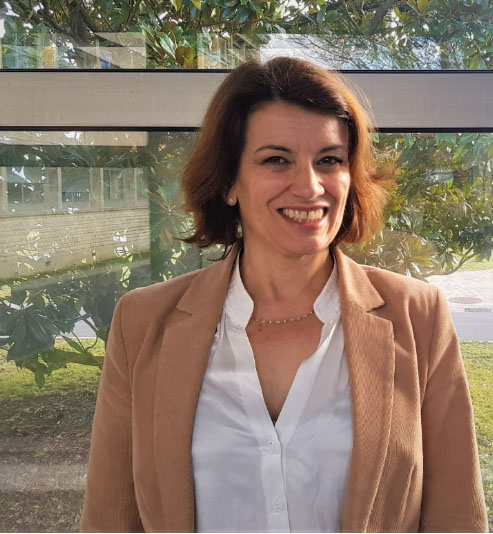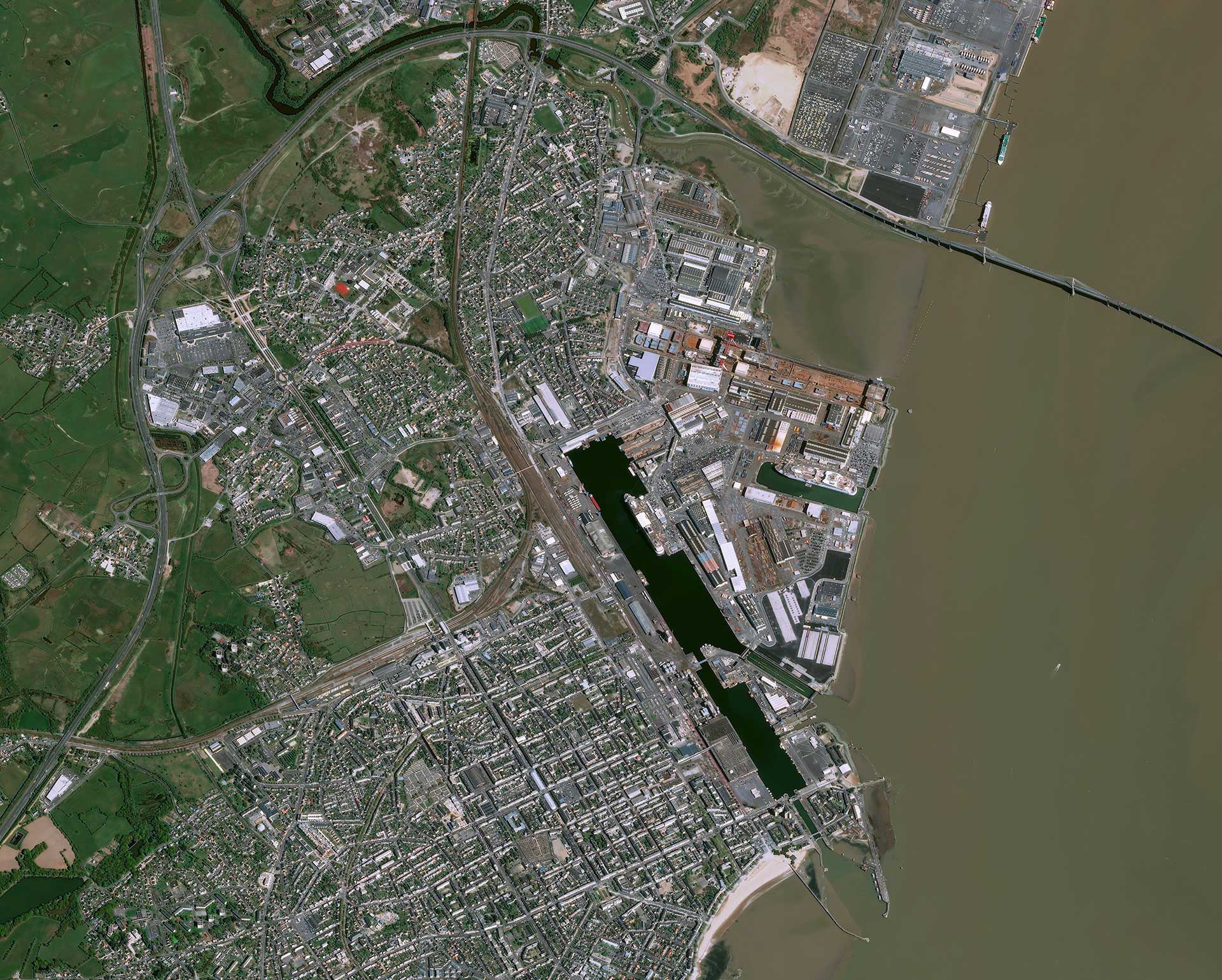One-to-one with INERIS
What is the mission of INERIS, the French National Institute for the Industrial Environment and Risks?
Laurence Rouil: With a staff of 550, INERIS is a Public Industrial and Commercial Establishment, with the distinctive feature of being entirely under the authority of the French Ministry for Ecological Transition and Territorial Cohesion, and more specifically the Directorate General for Risk Prevention. This sums up the core of our mission, which is to understand, identify and control chemical risks. These risks are essentially industrial in nature, but we are increasingly broadening our scope to include other sources of chemical risk, such as agriculture, traffic, and environmental pollution of water, soil and air. Nuclear and radiological risks are dealt with by a partner organisation, IRSN.
Created in 1990, INERIS is the result of the merger of the former research centre of the France Coal mining (Charbonnage de France) and a centre for applied chemistry, a legacy that gives us historic expertise in mining and post-mining. INERIS is a key resource for the Ministry and public authorities in all matters relating to industrial accidents (fire, dispersion, explosion), and has an emergency support unit that operates 24 hours a day, seven days a week.

Laurence Rouil, Director of Strategy, Scientific Policy and Communication at INERIS. © INERIS
How do the effects of climate change affect your areas of expertise in terms of "NaTech", natural and technological risks?
L.R.: Although climate change has historically been a factor outside our field of expertise, we are increasingly interested in the effects of global change on industrial risks, with two main components: pollution and the worsening and higher frequency of industrial risks.
In terms of pollution, we are interested in the behavior of chemical substances in the environment and how this behavior can be affected by climate change. Let's take atmospheric pollution as an example: as some pollutants, such as ozone, are produced at high temperatures with high levels of sunshine, the effect of climate change is immediate, and there is even talk of a climate penalty (there is more ozone because of climate change).
The second component is directly linked to risks, the famous NaTechs, which INERIS has always dealt with. A 'natural and technological' risk, a NaTech refers to the coupling of an extraordinary natural event with a technological indicator or accident triggered by this natural event, such as the tsunami that damaged the Fukushima nuclear power plant in Japan in 2011. The climate now comes into play because the natural events that make up NaTech are becoming more numerous, in a variety of forms, which will intensify the potentially serious and dramatic aspect of the situation and increase the frequency of incidents or accidents. In France, we know that there are going to be more and more forest fires; what we experienced in the south of the country last summer could, unfortunately, become the norm. INERIS therefore needs to incorporate forest fires as a more significant factor in relation to industrial risks and health and environmental impacts. In addition to this example, we have begun to review our own experience and the literature in order to better qualify the impact of climate change on this cascade of natural and technological events.
🎥 Watch this INERIS video to find out more about NaTech (in French)
Which phenomena have the greatest impact?
L.R.: These are essentially forest fires, floods and earthquakes. We also pay attention to coastal phenomena, on the one hand because of the urban areas developing along the coast with potential industrial activities, and on the other hand because of port activities. The latter are home to energy-sensitive activities such as hydrogen storage.
Methodologically speaking, we reason on the scale of an industrial site, but our studies are increasingly extended to the regional level because industrial sites have to be part of a national urbanization policy, which poses other problems that we have to integrate into our assessments.
How do you rate NaTech and how can satellite data help you?
L.R.: We work a lot on identifying scenarios, risks and cascade effects because, generally, it's a natural initiating phenomenon that will impact - directly or indirectly - a facility, which will react in a certain way. It should be noted that we also include the human factor. In doing so, we try to determine the situations and signals that could lead to a dramatic situation in order to define prevention plans. Satellite observation will help us on two levels.
In crisis situations, it enables us to monitor an event and/or identify the weaknesses of a site in order to better qualify the problem. In terms of prevention, satellite imagery can be a great help in detecting changes in land use around industrial sites (which requires very fine spatial resolution) or climatic events that could have an impact on these sites.
“The SCO is the Earth observation community working with other communities to find solutions.”
INERIS has been a member of SCO France since its creation in November 2019. Three years on, what is your vision of SCO France and what do you expect from it?
L.R.: The problems are on the move, and we no longer have the time to think for years. But the SCO France enables us to stimulate work with a strong operational component to deliver results in relatively short timescales, compatible with the urgency of the needs.
However, Earth observation (EO) alone is not enough. For the subjects that concern my institute, typically air quality, in situ networks clearly have a head start. However, we can see that EO can be remarkably complementary, and it's this added value of data coupling that we're looking for. So, I particularly appreciate the SCO approach, which brings together expertise and data in equal measure. For me, the SCO is the EO community working with other communities to find solutions.
You are very involved in the labelling committee which, each year, studies and selects the projects applying for the SCO label. Why, and what do you contribute?
L.R.: In this SCO committee, I'm looking at a lot of air pollution projects because, in addition to INERIS's work in this area, I've personally spent most of my career working on it. As I said earlier, this is a very mature field in terms of in-situ networks and models, and I want to encourage data coupling. I'm sometimes critical and a bit harsh, but it's for a good cause! What's more, by bringing together a multi-disciplinary community, this committee creates a certain amount of emulation and discussion that helps to advance our subjects, which is really exciting!
More specifically, how can SCO projects contribute to INERIS' expertise and guide public policy?
L.R.: The climate remains a long-term issue in our minds and, in fact, we are working with the Ministry in support of regulations relating to industrial risks and pollution for the next 5 years, not 50. However, we are seeing an acceleration in climate change and we are trying to anticipate this. Although climate change is not at the heart of our business, projects capable of facilitating the appropriation of a certain amount of data relating to the impacts of climate change will underpin our expertise and, consequently, the definition of public policies. This is one of the reasons why we are closely monitoring the development of certain SCO projects, which can provide off-the-shelf services, with 'digested' input data that will inform us, for example, about the vulnerabilities of industrial facilities, and enable us to integrate scenarios that are more closely related to climate change.
What future do you see for the SCO in its national and international dimensions?
L.R.: SCO France has laid some excellent foundations, but the stakes go far beyond our territory. So, I think it's crucial to move up a gear in terms of geographical reach. I'd rather talk about an essential development for the future, with a community and services that are structured on an international, or at least European, scale, particularly with Copernicus.
----------
INERIS, under the supervision of the French Ministry of the Environment, is tasked with helping to prevent the risks posed by economic activities to the health and safety of people and property, and to the environment. It also supports companies in making the most appropriate decisions to improve environmental safety.



